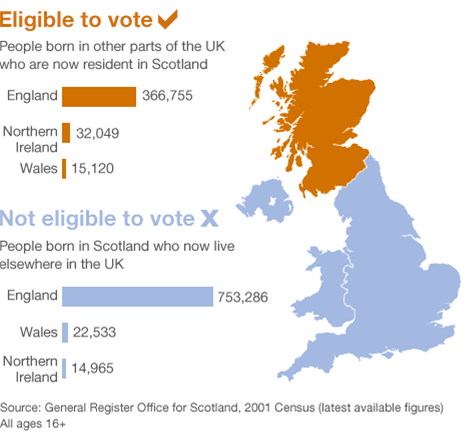By Kelsey Fraser, Editorial Assistant
The upcoming referendum on Scottish independence comes with some unusual rules on voter eligibility.
Under the Referendum Franchise Bill which governs voter eligibility in September’s vote, the voting age for the referendum, and only for the referendum, has been lowered from 18 to 16. [1] The pro-“yes for independence” leaders support the younger age eligibility and say that young people, younger than the usual voting age, have the most at stake in determining the future of Scotland.
Union supporters, who would like Scotland to remain part of the United Kingdom, have argued that the Scottish National Party is taking advantage of “youthful patriotism” by lowering the voting age to 16. They say that people under the age of 18 have too limited life experience to understand the important issues raised and their implications. [2]
The Franchise Bill allows only those living in Scotland to vote and extends the right to vote not only to UK citizens but also to Irish, EU, and British Commonwealth citizens who are legal residents of Scotland prior to September 2nd.
The huge Scottish diaspora, even those living in England or elsewhere outside Scotland, are ineligible. See chart below. [3]
Interestingly, the Franchise Bill also disqualifies convicted prisoners resident in Scotland. This rule has withstood a court challenge that claimed it was inconsistent with the European Court of Human Rights’ ruling which had earlier decided that that a blanket ban on prisoners voting rights was unlawful.

[1] http://www.theguardian.com/commentisfree/2013/jun/28/scotland-referendum-vote-16
[2]http://www.ibtimes.com/scottish-parliament-votes-allow-16-17-year-olds-vote-independence-referendum-1326699
[3] http://www.bbc.com/news/uk-scotland-scotland-politics-26550736

